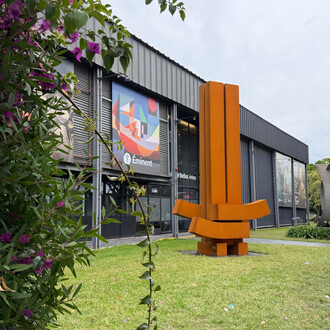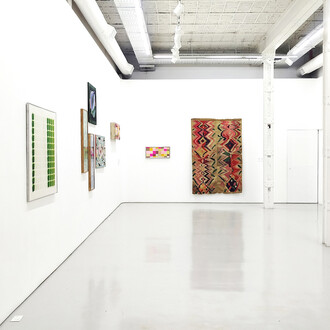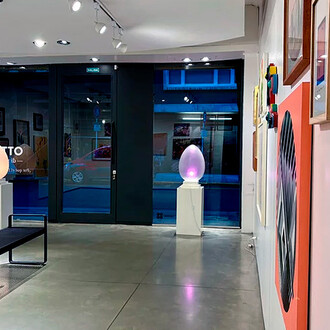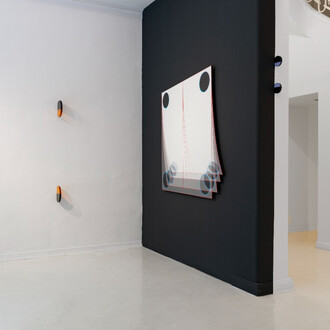Fundación Proa presents Human, the tenth edition of the prestigious Prix Pictet, the leading international award dedicated to contemporary photography focused on sustainability, for the first time in Latin America. From September to November 2025, Gallery 4 will showcase projects by the twelve finalists, who from diverse perspectives and contexts document the major challenges of our time.
Hoda Afshar (Iran), Gera Artemova (Ukraine), Ragnar Axelsson (Iceland), Alessandro Cinque (Italy/Peru), Siân Davey (United Kingdom), Federico Ríos Escobar (Colombia), Gauri Gill (India), Michał Łuczak (Poland), Yael Martínez (Mexico), Richard Renaldi (United States), Vanessa Winship (United Kingdom/Bulgaria), and Vasantha Yogananthan (France) address in their images urgent issues such as migration, armed conflicts, labor, memory, and the tensions between development and environmental degradation. Each proposal questions the material conditions of existence as well as the ethical and emotional bonds between people and their environment.
“These works alert us to all the threats we face and to the ever-narrowing range of options for achieving a positive outcome,” says Sir David King, chairman of the jury. Far from limiting itself to denunciation, the photography gathered in this edition of the Prix Pictet operates as a critical and sensitive tool, giving visibility to complex processes without falling into the literal or the spectacular.
Created in 2008 by the Pictet Group, the award was established with the aim of using the power of photography to draw global attention to the critical challenges facing the planet. Over its ten editions, it has addressed central themes such as water, consumption, hope, and fire, while building an international network of more than 300 nominators—critics, curators, and visual arts specialists—who recommend works for their artistic excellence and their ability to construct engaged visual narratives. More than 5,000 photographers have been nominated since its inception. The winner of each edition is chosen by an independent jury and receives a prize of 100,000 Swiss francs, one of the most significant in the field of photography.
“In April 1999, I set out to photograph rural schools in Rajasthan. A few months earlier, I had witnessed a young girl being beaten by her teacher, and the memory lingered with me. Back in Delhi, I proposed an essay to the political weekly where I was working on what it meant to be a girl in a rural school, but I was told my idea lacked a ‘meeting point,’ a theme with which more urban readers could identify. I decided to take a month’s leave and spend it in rural Rajasthan,” recalls Indian photographer Gauri Gill, who won the first prize in 2024 and whose work opens the exhibition at Proa.
Human at Fundación Proa
The arrival of Human at Fundación Proa reinforces a line of work that places photography at the heart of its programming.
Over nearly three decades, Proa has presented outstanding exhibitions, including Sebastião Salgado’s Exodus (November 2000 – February 2001), a moving exploration of migration and displacement; the solo exhibition of Christiano Junior (March – June 2002), which offered an intimate documentary view of Argentine communities at the dawn of the 20th century; MOD Photography + Design (March – May 2003), curated by Andrea Saltzman, which explored the relationship between photography and design; the group exhibition Argentine abstract art (2003), which included works by Grete Stern; and Cultures of the Gran Chaco (April – May 2005), which brought together pieces from the Ethnographic Museum alongside 95 of Stern’s photographs documenting the lives of indigenous communities of the Chaco.
In 2009, Urban Spaces brought leading figures of the Düsseldorf School to Buenos Aires for the first time. The landmark exhibition Photography in Argentina 1850–2010: contradiction and continuity (April – July 2018), organized with the Getty Museum, offered an exhaustive panorama of Argentine photography since its origins, while Aborigines of the Gran Chaco (March 2019) presented Grete Stern’s photographic essay on Indigenous peoples.
“For Fundación Proa, presenting the Prix Pictet in Argentina for the first time means opening a space for dialogue between contemporary photography and the urgent questions of our present,” says Adriana Rosenberg, President of the institution. “This award, which gathers artists from around the world to reflect on the connections between image, sustainability, and the human condition, naturally resonates with Proa’s mission: to bring the community works of excellence that stimulate critical thinking, artistic sensibility, and cultural debate. Its arrival in Buenos Aires situates the local audience within an international circuit where art becomes a platform for understanding and transforming reality,” she adds.
With this exhibition, Proa joins the international tour of the Prix Pictet, which has traveled to cities such as London, Paris, Tokyo, Munich, Dubai, and Dublin.
















